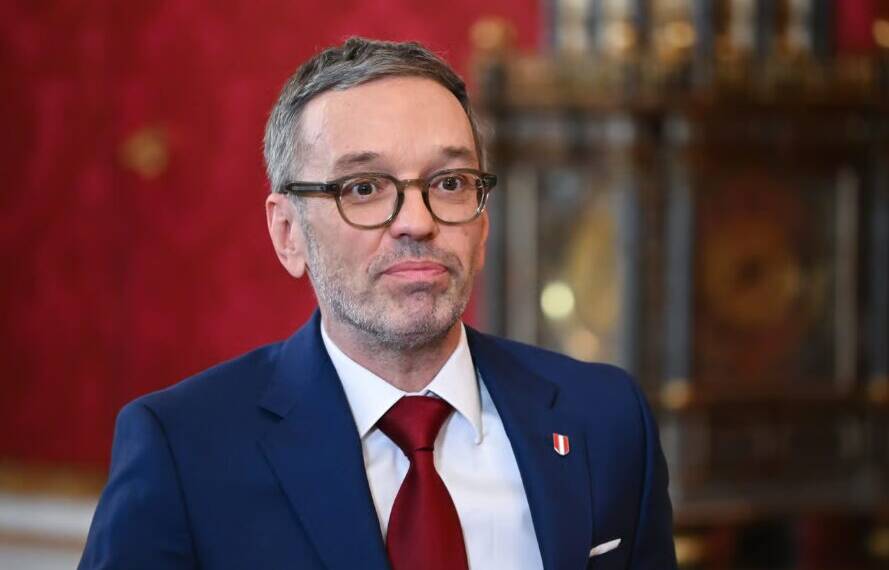A new political wave is sweeping across Europe in the wake of the Ukraine war – the rise of conservative parties and right-wing leaders. From Hungary’s Viktor Orban to Slovakia’s Robert Fico, these leaders are reshaping the continent’s politics and triggering unease within NATO.
But, what makes this new breed of right-wing politicians different? They’re pragmatists who prioritize populist interests over ideological warfare. They’re not afraid to challenge the established order, particularly when it comes to policies on Ukraine and immigration.
This trend is particularly strong in Eastern Europe, and now Austria appears to be next in line. Despite hardline efforts to prevent conservative parties from gaining ground, Austria seems poised for a significant political shift – potentially ushering in a government that could take harder stances on both Ukraine support and immigration policies.
Austria is probably going to see its first ever Anti-Ukraine and Anti-Islamist govt. Very soon and honestly, the EU and NATO can’t do anything about it now.
HERBERT KICKL COULD BE NEXT CHANCELLOR
As per local reports, Herbert Kickl is now the frontrunner to lead Austria after three month long uncertainty of coalition talks. After months of unsuccessful coalition attempts, President Van der Bellen has agreed to meet the FPO leader.
What’s interesting here is the shifting stance of the People’s Party (ÖVP). Their previous resistance to working with Kickl’s FPÖ seems to be softening, as noted by the President himself: “Voices within the People’s Party that rule out cooperation with an FPÖ under Herbert Kickl have become much quieter.”
The background here is crucial – since September’s elections where the FPÖ secured a significant 29.2% of the vote, traditional parties (Nehammer’s ÖVP, the Social Democrats, and Liberal Neos) have tried and failed to form a viable coalition without them. However, all of these attempts have failed.
These unsuccessful attempts have effectively forced a reconsideration of including the far-right FPÖ in government. In the midst of this, Austria’s Chancellor Karl Nehammer declared he will step down within the next few days following the second failure of negotiations to create a new government.
A day after the liberal NEOS party abruptly withdrew from coalition talks, Nehammer’s announcement followed the continuation of coalition talks between the Social Democrats and the People’s Party.
Nehammer will continue to serve as chancellor until he names a new interim, which he promised to do within the next week, according to Van der Bellen. But, the doors are now wide open for Herbert Kickl.
KICKL: A RISING FORCE
Herbert Kickl’s Freedom Party (FPÖ) emerged as Austria’s leading political force in the 2024 elections, securing 29.2% of the vote. FPO was the single largest in Austria as per vote share. However, the traditional parties denied forming any coalition with him.
Kickl’s stance on the Ukraine conflict has been notably different from mainstream European leaders. He has advocated for Russia in the Ukraine war, questioning Austria’s support for EU sanctions against
Russia and arguing that such measures harm Austrian interests more than they help Ukraine.
On immigration, particularly regarding Islamic immigration, Kickl has maintained a hardline position even claiming that these extremists are flooding Europe with crime. His party has pushed for stricter border controls and more restrictive immigration policies, drawing condemnation from the EU.
These positions have drawn both strong support and criticism. Supporters view his approach as protecting Austrian interests and sovereignty, while critics argue his policies could isolate Austria from European allies and harm international relationships. But despite all, Herbert is now emerging victorious.
CONSERVATIVES TROUBLE EU & UKRAINE
So, with Kickl’s arrival. One thing is sureshot, NATO is going to see intense trouble from Austria amid the war. Anyway, the rise of conservative leaders across Europe is creating significant challenges for both the EU and Ukraine’s war efforts.
From Slovakia’s Fico to Austria’s potential Kickl leadership, a new wave of conservative politicians is reshaping continental politics, largely fueled by growing public fatigue over the prolonged Ukraine war.
These leaders tap into widespread war-weariness, with citizens increasingly questioning the economic costs of supporting Ukraine. They prioritize national interests over broader EU objectives, challenging military aid commitments and Brussels’ immigration policies.
This trend is particularly strong in Eastern Europe, where conservative parties are gaining ground by promising to protect national sovereignty and traditional values.
Their growing influence has already impacted EU unity, with several countries reducing their support for Ukraine and pushing back against shenanigans of NATO.







